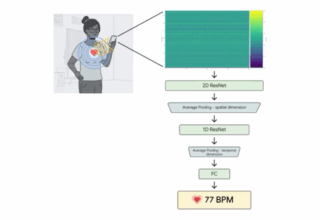Britain’s economy is shrinking at its fastest rate since the financial crisis after last month’s Brexit vote, making a Bank of England rate cut on Thursday a “foregone conclusion”, a closely watched survey of businesses showed.
Financial data company Markit said its monthly all-sector Purchasing Managers’ Index chalked up the steepest month-on-month decline on record after big falls in activity at private-sector services, manufacturing and construction firms.
“The unprecedented month-on-month drop in the all-sector index has undoubtedly increased the chances of the UK sliding into at least a mild recession,” Chris Williamson, Markit’s chief economist, said.
Wednesday’s numbers – which broadly match an early version two weeks ago – pointed to Britain’s economy shrinking by 0.4 percent in the three months to September, a decline not seen since early 2009 when the BoE last cut interest rates, he added.
Companies had “widely reported that the outcome of the EU referendum had weighed on new business”, Markit said. Britons voted to leave the European Union in a referendum on June 23.
Earlier on Wednesday, Britain’s National Institute of Economic and Social Research said it expected the economy to shrink 0.2 percent between June and September and saw a 50 percent chance of recession by the end of next year.
It is unclear, however, if July’s reading reflects a knee-jerk reaction to June’s vote, or the start of a steeper decline. Several other surveys have shown big falls in business and consumer morale, but there has been no official data on output.
Next (NXT.L), one of Britain’s biggest clothing retailers, reported a pick up in sales in its second quarter on Wednesday and said it had not so far seen a big impact on demand from the EU vote although the fall in sterling would push up its costs. That could be passed on to consumers through higher prices.
LOWER RATES LOOMING?
Almost all economists expect the BoE to reduce rates by at least a quarter percentage point to a record low 0.25 percent on Thursday, but they are more split on whether it will restart its quantitative easing programme of government bond purchases. [BOE/INT]
“It’s a tempting policy to restart, but if you look at it objectively through the channels through which it operates … there’s not that much scope to do anything more,” Investec economist Philip Shaw said.
NIESR said it did not expect the coming slowdown to match that seen during the global financial crisis – Britain’s worst recession since at least the 1930s – and Markit said there is “substantial uncertainty about the extent of any downturn”.
Similar PMIs for the euro zone showed a slight pick-up in growth.
Markit said it was too early to know if the PMIs would stay as weak as they are now, but added that confidence about the year ahead was at its lowest ebb since February 2009 among firms in the services sector, the engine of the British economy.
“A quarter-point cut in interest rates therefore seems to be a foregone conclusion … though the extent and nature of other non-standard stimulus measures remains a far greater source of uncertainty,” Williamson said.
Measures to tempt banks to lend at record-low rates, as well as possible purchases of private-sector assets such as corporate bonds, are potentially on the table alongside buying more government debt with freshly created central bank money.
The BoE’s chief economist has said he is willing to use “a sledgehammer to crack a nut” in tackling weak growth, but others may prefer to wait for more data and see if the government unveils an autumn package of extra spending or tax cuts.
July’s PMI for the services sector was unchanged from the ‘flash’ estimate of 47.4 released on July 22, down from 52.3 in June and the lowest since March 2009.
The all-sector PMI was slightly weaker than first estimated, at 47.3 — the lowest since April 2009 — due to a poor showing for Tuesday’s construction PMI. The fall from 51.9 in June was the biggest since the survey started in 1998.
[Source: Reauters]
















